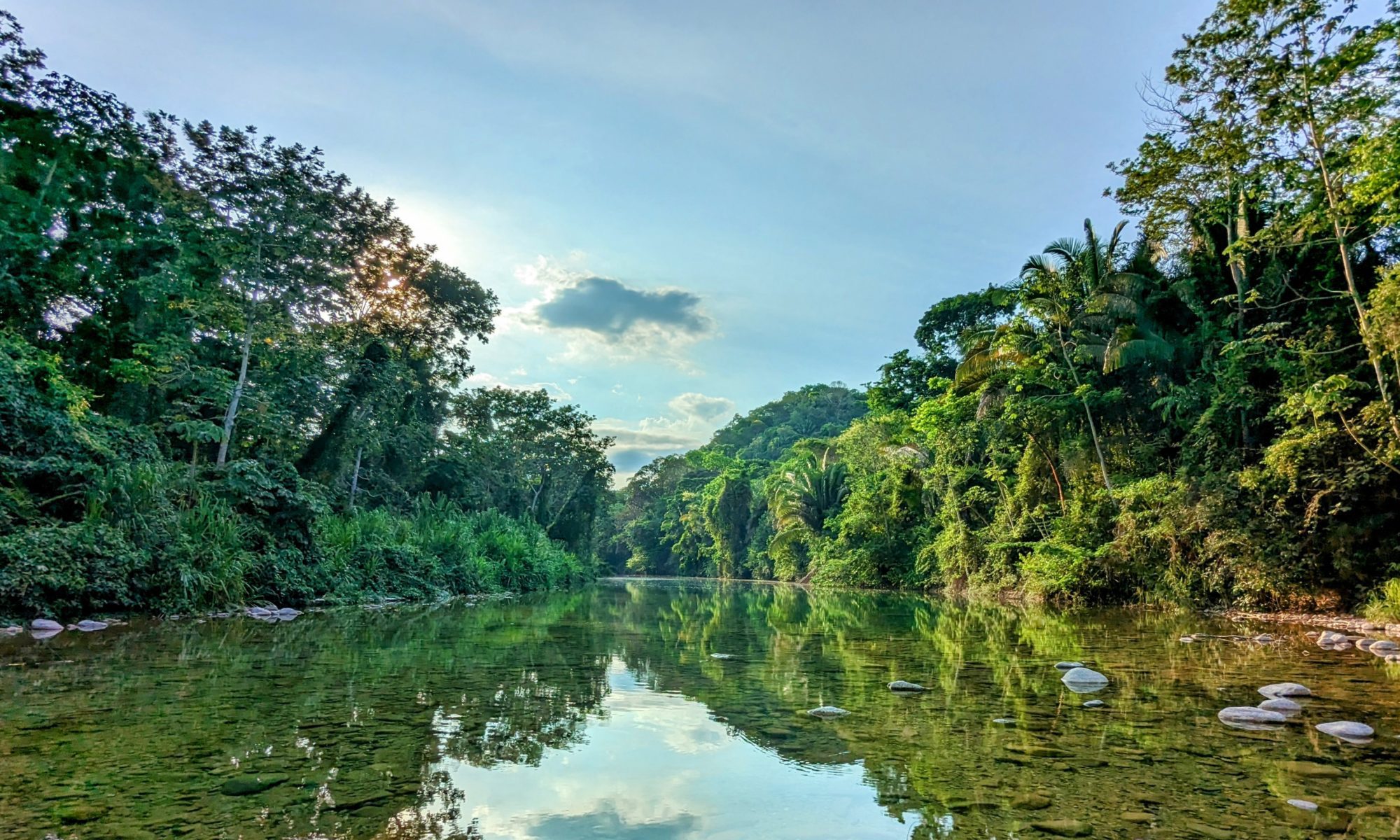
It goes without saying that the Smith Center for International Sustainable Agriculture is an invaluable resource, allowing students in the Herbert College of Agriculture to go on cross-cultural trips to enrich their education and expand their worldview.
Whether it’s for a class, internship, or research project, students have access to numerous educational and professional opportunities in many countries. For example, several Herbert students ventured to Belize this past summer to participate in various programming.
Amber Gunter, a senior in environmental and soil science, worked on a research project at the Belize Foundation for Research and Environmental Education (BFREE), focusing on cacao pollinators and how agroforestry can help conserve biodiversity in the rainforest.
Gunter expressed, “I learned a great deal about a variety of topics ranging from insect habitat and trapping methods to the fermentation and processing of cacao. I was also introduced to a range of investigative approaches and data collection techniques, which has sparked a greater interest in agricultural and conservation research going forward.”
Layney Clarke, a junior animal science major with a pre-veterinary medicine concentration, also traveled to Belize for a specific program called the Small Animal Veterinary Experience. The program involved working with Belizean communities to provide veterinary care to areas that could not afford it.
Clarke spent the majority of the trip studying cardiovascular and respiratory systems, learning how to monitor patients under anesthesia, calculating drug dosages, and performing physical exams. She mentioned that their group performed ninety physical exams and thirty-one spays/neuters in total.
When asked about her favorite experience in Belize, Clarke listed providing care to animals beloved by their families at the very top. For example, one of the communities the group worked with was a refugee camp called El Progreso. “The families in this community stood outside in the heat for hours waiting for us to see their animals. They were kind, understanding, and grateful for our presence in their community.”
Lastly, Ashlyn Smith, a senior in wildlife and fisheries, spent two weeks in Belize for the Wildlife and Fisheries Science 425 class: Tropical Ecology, Conservation, and Field Methods. Smith had traveled to Belize before, but chose this trip because the programming aligned with her major. “The agenda full of tropical mammal handling work was really what pulled me in because that is what I had planned for my future career.”
Smith mentioned interacting with Mayan, Mestizo, and Creole cultures as one of her favorite aspects of the trip. She expressed, “Belize has done an incredible job preserving and embedding these cultures into what the country is today.” For example, archeological sites like ancient Mayan ruins are accessible to the public, and you can easily engage with current descended Mayan communities. Smith said all three people groups are very much “intermixed and cemented” into Belizean culture.
Another highlight of Smith’s time in Belize involved snorkeling over the coral reefs. The water was so clear and blue that she compared the experience to “swimming in a giant fish tank.”
All three students agreed that their experiences in Belize have contributed tremendously to their future goals. For Gunter, the research project aligned well with her minor in international agriculture and natural resources. She also shared her hopes of continuing international research in graduate school and beyond.
Clarke’s goal is to become a veterinarian and to primarily work with small and exotic animals. She expressed, “This was a beautiful experience for me because it showed me a different part of veterinary medicine.” Clarke explained that the experience highlighted the importance of knowing the basics and thinking on your feet when you don’t have access to basic medications and medical equipment.
She continued, “I would highly recommend anyone applying to veterinary school to consider a study abroad trip before you apply because it completely changes your view of the field.”
Smith was originally interested in pursuing international conservation as a career, but her experiences in Belize altered her perspective. Her career plans might be shifting, “but it’s so important to figure that out as you go along,” she explained.
Given the quality of their experiences in Belize, all three students offered the same advice to those considering studying abroad—do it!
Gunter and Clarke commended the Smith Center and the Herbert College of Agriculture for making their trips possible through available scholarships. Clarke is a first generation college student and is the first in her family to travel abroad. She said, “It is a daunting experience, but when you study abroad at UT, you are in good hands.”
Smith offered some final words of wisdom on studying abroad. “Go with an open mind, a full water bottle, and a big ole smile as you embrace a once in a lifetime experience!”
